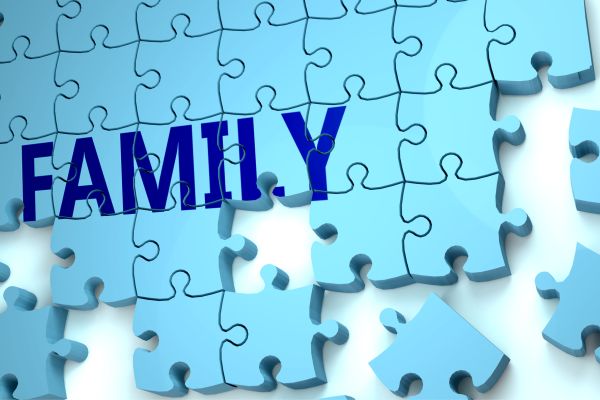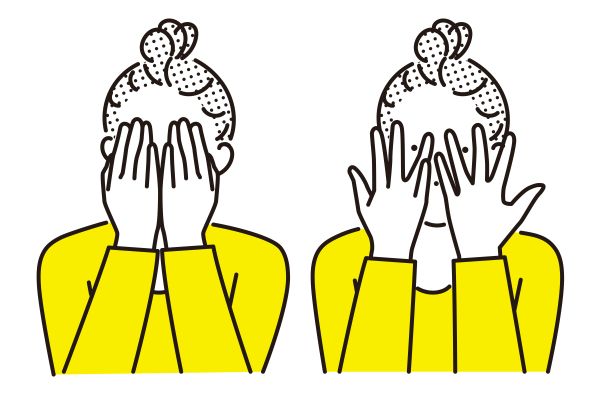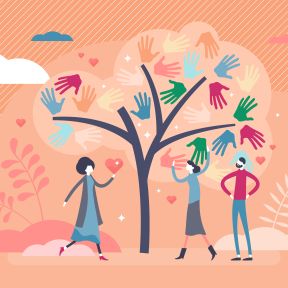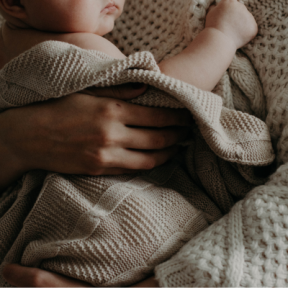The Adoptee Experience
For most adoptees, being adopted is just one piece of a multifaceted identity—and like other identity markers such as race, gender, sexual orientation, or personality, it’s often necessary to navigate feelings of uncertainty, pride vs. shame, and questions about who one is and where they’re meant to be in the world. Adoption has unique influences on identity formation as a child grows up and may require that children confront loss and feelings of rejection; it may also present distinct challenges in adulthood, particularly when it comes time to discuss family history that might be unknown. Though being adopted has its challenges as children grow into adults, many adult adoptees report feeling stronger for having navigated them—and may even end up feeling more connected to their adoptive families, their birth families, their cultures, and their inner selves as a result.
On This Page
Nowadays, in the U.S. and other countries where formal adoption is common, most adoptive families start discussing adoption with their child from the moment they arrive home—thus, the “big reveal” in which a child suddenly finds out they’re adopted is less common than it once was (though not unheard of). Growing up knowing that one is adopted generally has beneficial effects on children’s mental health and sense of self. However, it also raises questions that the child will need to grapple with as they grow: What does it mean to be adopted? Does being placed for adoption mean that they were unwanted? Is it possible to truly fit in in one’s adopted world?
Talking to adoptive parents—and birth parents, if they’re in the picture—about these questions can help adoptees navigate them. But parents, even loving ones, may not fully understand the complexities of growing up adopted or may feel uncomfortable talking about adoptees’ experience with identity, culture, loss, and trauma. Thus, talking to other adoptees, either online or in person, can perhaps be even more helpful for adoptees trying to build their identity and make sense of their past.
If an adoption is closed, or a child is adopted internationally, adoptees may spend much of their lives wondering who their birth parents are or whether they’re still alive. Whether or not to search for or ultimately attempt to meet them is a deeply personal decision that should be left up to each individual adoptee. Finding birth parents is not a cure-all for the challenges of growing up adopted; birth parents may not be who adoptees expect or they may not be interested in a relationship. However, many adoptees who decided to search or who did get a chance to meet their birth parents report that the process brought a greater connection to their roots, a better understanding of their past, or answers to long-standing questions. What’s more, some adoptees do go on to have close relationships with their families of origin after meeting in adulthood.
It can be helpful for adoptees to think about specific topics they’d like to discuss or to draft a list of questions they’d like to ask their birth parent(s). Though it’s difficult, adoptees and other experts recommend keeping expectations and assumptions to a minimum; even if a birth parent is happy to meet, it may still not be the picture-perfect reunion an adoptee hopes for. Most experts also recommend that adoptees set internal boundaries beforehand—how long the meeting will last, whether they’re interested in a second meeting, etc. Above all, it can be helpful for the adoptee to remind themselves that no relationship forms instantaneously; it will likely take time for both adoptee and birth parent to feel comfortable with each other.
Some adoptive parents take adoptees to their birth country during childhood. Once the adoptee matures, deciding whether or not to visit their birth country should be left up to their discretion. Visiting their country of origin can help an adoptee understand their cultural heritage and feel more connected to their roots; for many—particularly those who were adopted transracially—it’s a chance to feel as if they “blend in” for the first time in their lives. However, like meeting birth parents, going back to a birth country can be fraught with challenges. Some adoptees report feeling out of place in their birth country; they may feel saddened by poverty or violence that they witness. Learning about the country beforehand and considering what they hope to gain from the visit can help adoptees make the choice that is right for them.
Adoptees traveling with their parents can make the trip at whatever age their parent deems appropriate; some experts recommend that children have at least one visit after the age of 8 so that they’re more likely to form strong memories and be better able to engage with what they see and do. Once adoptees are old enough to travel by themselves, if they’re interested in visiting, they can go at whatever age feels right to them.
First, adoptees should recognize that identity questions are a normal part of growing up adopted and that such feelings are nothing to be ashamed of. Adoptees may feel guilty for questioning who they are or their place in their family, particularly if they grew up in a safe and loving environment.
But adoption, by its very nature, creates multiple dimensions in a person’s identity; adoptees will always be connected to both their adoptive parents and their families of origin, even if they have never met the latter. Questions about where they “belong” are a natural consequence of this internal dichotomy, and the loss it usually involves. Many adoptees must also navigate racial or cultural differences that can make them feel out of place in their adoptive family (or even sometimes with their birth family); these challenges can make them worry that they don’t belong anywhere.
Adoptees will, ideally, be able to talk to adoptive parents or birth parents about these feelings; if the parents are not understanding or not in the picture, it can be helpful to talk to other adoptees, friends, or a therapist (there are many who specialize in adoption).
Absolutely. Many people, adopted or not, think about different directions their lives might have taken: “What if I had taken that job? What if I had said yes to that marriage proposal?” For adoptees, their past has a clear bifurcation—before and after they were adopted—and it’s common to wonder what might have happened if they had somehow been able to take the other path. For some adoptees, talking to birth parents (or meeting them for the first time, in the case of a closed adoption) can help them cope with these feelings, as they can get a more accurate sense of what their life might have looked like and take stock of what they now have. Adoptees who feel that they are ruminating on this question, however, may benefit from seeing a therapist to help them sort out their complex emotions and questions of identity.
Feelings of rejection—or that there was something “wrong” with them that led to them being placed for adoption—are common in adoptees. At a certain level, such feelings make sense, as many (but not all) birth parents did actively decide not to parent their child. Adoptees, however, may feel guilt or shame alongside these feelings of rejection—especially because many narratives of adoption paint adoptees as lucky for being “chosen” by their adoptive parents and can make it seem as if adoptees who feel rejected are somehow ungrateful. But this isn’t true; even adoptees who love and cherish their adoptive parents may struggle with feelings of rejection.
Learning more about what caused their birth parents to place them for adoption can help adoptees navigate these painful emotions. In an open adoption, adoptees are able to ask their birth parents directly; though the answer they receive may not bring solace right away, it can help them empathize with their birth parent(s) and the difficult choice they made many years prior. In the vast majority of cases, they’ll learn that the decision was caused by factors well beyond their control—their birth parents’ untenable financial situation, for instance, or precarious home life. If the adoptee is not in contact with their birth parents, reading birth parent accounts and exploring why those in their birth parents’ situation might have made that choice can help them place their adoption in the context of the larger social and economic pressures that most likely influenced it.
Cultivating other relationships in which they feel loved and valued can also be a source of comfort for adoptees. And as with other identity questions faced by adoptees, going to an adoption-focused therapist can be a valuable means of processing feelings of rejection.
Adoptees often receive uninformed, uncomfortable, or openly offensive questions or comments about their adoption specifically or the practice in general. It can help to prepare responses beforehand to common rude remarks made about adoption (like, “How much did you cost?” or “Why did your real parents get rid of you?”).
In some cases, an adoptee may feel as if the question or comment is coming from a place of genuine curiosity, even if it is phrased indelicately; in these cases, many adoptees find that offering a quick “lesson” on adoption can help them feel empowered and positive about their adoption and as if they’re helping educate the person who made the remark. However, adoptees should know that they are under no obligation to do this. If there are parts of their adoption story that they’d like to keep private—or they simply are uninterested in discussing adoption at that time—they are well within their rights.
A large number of adoptive parents in the U.S. are white; adopted children, on the other hand, hail from a wide variety of racial and cultural backgrounds. Because white Americans, in general, are often uncomfortable talking about race and racism, they may try to adopt a “colorblind” approach with their children and insist that race doesn’t matter. But, as many adopted children can attest, race does matter, and talking about their experiences growing up as a person of color is vital for helping adoptees make sense of their identity.
If an adoptee’s parents don’t bring up the subject of race independently, adoptees should feel empowered to raise the topic with them. The adoptee can start by saying that there are aspects of their experience that the parents may not understand—being the target of racism, perhaps, or feeling out of place in majority-white communities—but that they would really like to have the space to talk about. They can share books or other information about racism, white privilege, or the challenges of being a transracial adoptee to help their parents educate themselves.
It’s natural for adoptees to feel angry or hurt by their parents’ discomfort. But honesty is the best policy, and it’s not an adoptee’s responsibility to try to spare their parents’ feelings (even if it can sometimes feel like it). If the first conversation doesn’t go well, experts recommend trying again. In the meantime, seeking out role models who share the adoptee’s race and sharing their frustrations can help enormously.
In an ideal world, adoptive parents will bridge the subject of racism and help adoptees develop strategies for addressing it. These strategies should encompass both ways to respond in the moment and ways to strengthen the adoptee’s racial identity. In lieu of that, adoptees can work to develop these strategies on their own. Books and online resources can be a big help, as can planning in advance how to respond to racist comments or behavior. Finding friends or a mentor who shares the adoptee’s race can help the adoptee both develop additional anti-racist strategies and develop greater pride in their race or ethnic background. Talking to white parents about the challenges of racism, and encouraging them to advocate for racial equity in the community, can help adoptees share the burden of racism with their white family members.
Many adopted children struggle to make sense of their birth family’s dysfunction—whether in the form of drug abuse, volatile relationships, career or housing instability, or mental illness. In many cases, such dysfunction can provoke deep pain in adoptees; a birth parent may disappear for months or years at a time, for instance, or may make promises that they prove unable to keep.
Some adoptees have found that learning about potential causes of their birth family’s dysfunction—such as the cycle of addiction, the difficulties of accessing care for severe mental illness, or the challenges of escaping poverty—helps them to build empathy for their birth family, even when the relationship is frustrating or upsetting. Temporarily pulling back from contact as necessary, usually with the option of resuming the relationship later, can also be a form of self-care for adoptees when the dysfunction becomes difficult to cope with. Therapy, as well as seeking support from family, friends, or other adoptees, can help adoptees develop coping mechanisms and maintain a long-term relationship with their birth families if they so choose.
It’s important to remember that dysfunction is one thing; abuse is another. If an adoptee finds that their birth family is cruel to them, steals from them, or otherwise actively harms them with no signs of remorse, they are under no obligation to maintain the relationship. Many adults, adopted or not, finally decide after years of poor treatment that they are better off cutting themselves off from a toxic family. It can be particularly difficult for adopted children to cope with family estrangement, especially if they believe that they are obligated to remain in contact with their birth family. But it may, ultimately, bring greater well-being.
By the time they reach adulthood, many adoptees feel that they are more secure in their identity than they were as children and adolescents. But there may still be aspects of being adopted that can feel challenging for adults to navigate—particularly when it comes to accessing family records, sharing their adoption story as they grow older, and meeting others who have shared their experiences and are willing to connect.
In addition, the rapidly growing popularity of genetic testing has led many people to discover later in life that they were adopted; this can, naturally, come with countless questions about identity, family relationships, and trust. Connecting with others who have undergone similar experiences—and seeing a therapist if necessary—can help people cope with such discoveries and come to terms with this new facet of their life story.
Forming close relationships with other adoptees is a great way for adults to feel understood, speak openly about the ups and downs of growing up adopted, and build a community wherever they live. While it’s not always easy to meet other adult adoptees organically, there now exist myriad tools that can assist. Online support groups are a great place to start and are easy to find with a simple internet search; it’s also possible to locate in-person meetups online, especially in major cities. Adults may also have success visiting a local church or community center; some run support and discussion groups specifically for adult adoptees.
Even adoptees who are comfortable openly discussing their adoption with adults may hesitate to bring it up to their own children, especially biological ones. Some worry that the knowledge may affect the child’s relationship with her grandparents; others fear that their child will begin to worry that he could be placed for adoption at any time. Despite these challenges, however, many experts recommend being honest and telling children as early as possible. The same advice given to adoptive parents generally applies to adult adoptees, too: Talk about adoption in positive, age-appropriate terms, and be prepared to answer any questions they may have. And make sure the conversation doesn’t end there—talking about adoption regularly and casually can go a long way toward making their parent’s adoption a normal part of the child’s overall life story.
Many adoptees report at least considering adopting a child of their own, and many eventually go through with it. However, there is little data as to whether adoption is more or less common among adult adoptees than it is among non-adoptees.
In some cases, yes. Adult adoptees who are in contact with their birth family, however sporadically, can often glean some information from them; for some adoptees in closed adoptions, the desire to learn their medical history at least partially motivates their desire to search.
In cases where contact is impossible or unwanted, it may be possible to reach out to the adoption agency that facilitated the adoption; they may have information about birth parents’ health or family history on file. In the U.S., the adoptee may also be able to obtain information from the United State’s Children’s Bureau, a federal agency focusing on child welfare. Laws about the release of medical history vary by state; adoptees should look up their state office and contact them for further information.
Such records are often incomplete and are not updated regularly; however, they can provide a basic outline for adoptees interested in the family’s medical history. In recent years, some adoptees have turned to genetic testing to get a sense of their risk for specific medical issues.
The rapid growth of consumer-ready genetic testing has revealed many family secrets. For many adults who believed themselves to be their parents’ biological children, learning they were adopted can come as quite a blow. Acceptance will likely be a slow process; adult adoptees should be patient with themselves and recognize that they are coming to terms with an immensely complicated discovery wrapped in decades of secrecy. A wide range of feelings—from anger to curiosity to sadness to confusion—will likely fluctuate in the months after the test results reveal the truth.
For older adults, recognizing that secrecy around adoption was widespread when they were children may help them accept that their adoptive parents were likely not acting maliciously; rather, it's possible that they were conforming to common social pressures of the time. For younger adults, or those whose parents are still alive, discussing the newfound knowledge with them can be painful and may trigger familial tension; however, in many cases, adults and parents report that the chance to finally be honest ultimately brought them closer together. Reaching out to newfound birth parents, too, can be cathartic for some—and may even lead to close, fulfilling relationships. Some adult adoptees find that their birth parents have been searching for them too.
Many adults who recently discovered that they were adopted benefit from seeing a therapist, at least temporarily. A professional can help navigate difficult feelings, confront feelings of betrayal or anger, and help reconcile questions of identity.














